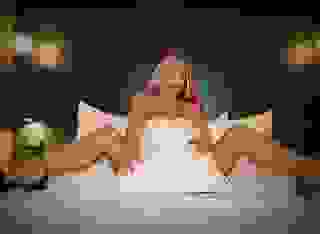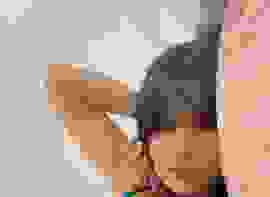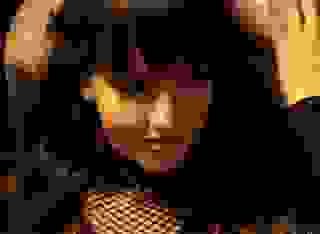Note: You can change font size, font face, and turn on dark mode by clicking the "A" icon tab in the Story Info Box.
You can temporarily switch back to a Classic Literotica® experience during our ongoing public Beta testing. Please consider leaving feedback on issues you experience or suggest improvements.
Click here"You can help—"
"Yes, I can help. I have the money, the power, and the influence to help, but I won't." Michael put his hands on his knees. "Your way is not helping anyone. Your way is a continuation of pouring fuel on a fire that burns hotter and never goes out. I'm not saying that what you stand for is wrong. I am not saying that your organization needed not to exist. I am saying that the bloodshed must end." He leaned in to Shawn. "The Irish have always been a thickheaded group, but someone has to lay down their arms." He touched Shawn's knee. "Someone has to be rational. The violence has to stop." He stood and walked to his desk and sat behind it. "I am sickened to read about another car bomb killing another child." He leaned forward. "Tell me Shawn, how does killing women and children and the feeble and elderly forward your cause?"
"And how do, one man, even a saint of a man, propose to stop the violence that has continued between the Irish and the English and the Catholics and the Protestants for more than four centuries."
"I am not proposing that I can stop the war. I am just as powerless to do that as is the IRA. What I am proposing is that I refuse to help enable you in your war. Yet, what I have the power to do is to shelter those who want to leave Ireland. I have the money and the power to help with the legal representation and the influence to cut through the red tape of immigration. I can give those who want them, jobs and loans for a mortgage or to buy a car. I can educate their children."
"I see." Shawn mashed his cigarette in Michael's ashtray and waved his hands in the air in an effort to take back control of the conversation.
"You must use me for what I can do for you and not for what I cannot do for you."
"You're proposing that the Irish abandon their country, forsake their inherited rights, and flee to America where, once here, you will finally help them."
"I can see no other way to make my people stronger than by using my money, power, and influence to hire them and educate them so that they can live and prosper in the greatest country in the world. Perhaps, one day, those who want to return, will return better armed with knowledge and money instead of with guns and hatred. Then, they can return to claim what is legally theirs. For now, I see no other alternative than to retreat until the Irish become more powerful, in every way, than their enemy.
Shawn stood and offered Michael his hand. They shook hands and Shawn held onto Michael's hand.
"You are a good man, Michael O'Leary and I understand your sentiments. Clearly, I do. You, almost a priest, but we've had many men of the cloth helping us in our war and crusade against the Protestant English for four centuries." He let go of Michael's hand. "I'll tell my brothers what you have offered but it won't be well received. There will be those who will not listen to reason and who will want to silence you for good."
Shawn turned and headed for the door and Michael met him there.
"You must make them understand that my power and influence is more for the long-term than it is for the short-term. He whispered, "Sure, I could launder their cash to finance their arms deals, but for how long do you think that I can do that before the FBI arrests us and closes us down." He touched Shawn's shoulder, "I am more powerful to you if you accept my help without having me forsake my Christian beliefs."
"I'll try, Michael." He turned and reached for the doorknob. "I'll try."
"Only a man who did not want peace and who wanted to continue the fight would vote against the assistance of another man who offered them their committed help unconditionally and without obligation towards a cease fire and towards an eventual peace.
Chapter 42 At 5'3" Tall, He Was the Biggest Man In South Boston
The residents of South Boston deemed Michael their financial savior. Happy that he had made much money in his absence from Neighborhood Bank, everyone wanted him to make more. They wanted him to make more money than Bill Gates, Sam Walton or Ted Turner did. They wanted the bragging rights that the richest man in the world lives in their neighborhood. They knew that the more money Michael made, the more likely he was to help his people find good paying jobs, and build affordable housing, better schools, safer playgrounds, and top rated hospitals. They wanted the bragging rights that the richest man in the world is an Irish American Roman Catholic.
They were grateful that he returned to South Boston to share his financial success with his neighborhood by opening a neighborhood bank. Usually, those who had made it big leave South Boston for the bright lights of New York or the fast life of Hollywood never to return. Friends and family with their familiarities in their hearts, mothers and fathers with their babies in their arms, and politicians and business owners with their hats in their hand all hoped to appeal to his kind spirit and generous nature. Those who looked for a leg-up figured that their Irish heritage and their South Boston address entitled them to something that those who were not Irish and who did not live in South Boston were not entitled to, and those Irish residents of South Boston were not too proud to go to Michael with their hand out and ask. They hoped that their name and Irish face took precedence. After all, they thought of his success story as the luck of the Irish and as their birth right. Indeed, his story seemed no more plausible or real to them than their dreams of winning the lottery.
The word about Michael and his new neighborhood bank spread through the neighborhood faster than the floodwaters, which broke through the seawall more than fifty years ago and flooded the streets of South Boston. Friends told their friends and relatives told their relatives. The local newspaper, as soon as they found out about Michael returning to South Boston to open a bank, splashed his name and picture across the front page. Every day, his name, photo, and stories about his public successes and his private life were heralded somewhere in the newspaper. Everyone could recite his biography; they had read it so many times in the newspaper. He was their hero. He was the good Irish, Roman Catholic boy from Southie who had made it big in the world outside of South Boston, and instead of disappearing with his wealth to some luxurious hideaway palace, he returned home to help his friends and neighbors.
He was to the neighborhood what John F. Kennedy was to Boston, to Cape Cod, and to the nation. More of a local hero than Johnny Kelley for winning the illustrious Boston Marathon six times and for running in it sixty-one times, Michael's name was synonymous with success and prevalent, respected and said with awe within the community. More of a local hero than Sean O'Donnell for saving a block of families from the fire that they had on A Street a dozen years ago, the community that gave Sean their gratitude for their fire safety gave Michael their hope for their financial security.
Michael had indelibly written his name within the history of South Boston. They loved him. Bigger than life, at 5'3" tall, he was the biggest man in South Boston, in all of Boston, and in all of Massachusetts. More influentially powerful than the Mayor and the Governor, he was the voice of the people. He was the common man's dreams and hopes. He was the one who everyone sought for help. He was the one who everyone asked a favor. He was the Godfather and the Pope all in one man. He was Michael Patrick O'Leary, nicknamed, Saint Michael.
They wanted him to run for office. There was already a grass roots organization started to put his name on the ballot for Mayor, for Governor, and for President. A vote for Michael O'Leary is a vote for the American Irish. A vote for Michael O'Leary is a vote for the people and for the common man. A vote for Michael O'Leary is a vote for you and me. You could not enter a pub, barroom or tavern in all of Boston without hearing the name of Michael O'Leary bandied about. Many brawls have started from some drunkard insulting Michael O'Leary.
"Ah, he's just a man who puts his pants on just like me."
"Don't you be saying anything against St. Michael, the son of South Boston."
That was all it took for the police to break up a drunken riot. That was all it took for the citizens of South Boston and Boston proper to rally to Michael's defense. There was a wave of support for him that transgressed any sense of logic. They all wanted to grab on to his coattails hoping that he would pull them all up the ladder of success and if anyone dared kick out one of the rungs of their ladder of dreams, they had better be ready to fight.
Outside of South Boston, the rest of Boston Proper, from Beacon Hill to the South End and from East Boston to the North End, Dorchester and Roxbury, Mattapan and Hyde Park even, anywhere there was pockets of Irish and those who were not Irish but who supported his ideas and ideology embraced him and his new bank. In the minds of his supporters and fans that had followed his personal success story, he could do not wrong. A living legend, a champion of the Irish, a new hope for the little man, his every public success was their personal success. His every personal success was heralded in the daily news and, by the end of the news day, grew to monumental rumored proportions throughout the neighborhood, the City of Boston, the State of Massachusetts, and the country. His feats of success grew larger and he loomed larger with each downed draft of ale at the pub.
"To Michael O'Leary, I wish him every success."
He lived the charmed life. People perceived him as possessing the secrets to personal success and financial freedom. The proclaimed overnight prince of banking, they too wanted to realize the magic that made him the darling of Wall Street. Tired of their lack of service and indifference, once they opened their accounts at their big banks, the little people wanted customer service, the same customer service that the wealthy people demanded and received and Michael was all to willing to accommodate them.
The banking customers from outside of South Boston pressured O'Leary Savings and Loan to open branch offices in their communities or, at least, offer on-line banking, so that they could be a part of the miracle of the O'Leary Savings and Loan success story. Happy to be the bank of his neighborhood and no more, Michael refused outside pressure to expand his bank to the size that made the big banks effective at making money but ineffective in servicing their smaller customers, the entire point of his reason for returning to South Boston to open a neighborhood bank.
He could have retired with the thirty-five million dollars that Ralphie gave him and lived very comfortably in some exclusive community with Gabriella, Angela, and their new baby boy, Ralphelle. He could have invested in the stock market, lived out the rest of his life clipping coupons and cashing dividend checks or he could have started a new venture, as a silent partner with a high tech dot com firm in need of capital, but he chose not to do that. Instead, he chose to return to the community that he so loved and to give back of himself. He chose to fill the hole that Earth Bank had blasted when they dynamited Neighborhood Bank to the ground.
He wanted to give his neighbors something that the community had been missing since Earth Bank closed Neighborhood Bank. Neighborhood had been the community lifeline for 100 years and when Earth Bank silenced it, the community withdrew. Earth Bank, with their impersonal service to those customers whose deposits amounted to less than five figures, did not care about the community. The east side of South Boston, the side even the residents hated admitting was part of Southie, no longer had a neighborhood bank, one that would reach out to help those who needed it, really needed it, and he wanted to give them one. He wanted to give all the citizens of South Boston, especially the ones who needed it the most, the opportunity to buy a house, a car or to payoff their credit card debt. Now, without a bank that cared, the residents of the community did not have the opportunity for a mortgage, a new car loan or lower their unsecured debt.
Besieged with requests for help, for favors, and for money, Michael could no longer walk the streets of his beloved neighborhood in peace. Now, flanked by bodyguards and centered within an entourage of personal assistants, Michael became too busy and too important to be accessible to those who needed the help and who he wanted to help. Removed from the every day community gossip, now a support staff briefed him on what he needed to know to make his philanthropic decisions. Every move choreographed by secretaries making appointments, his success removed him from the people and replaced them with a delegation of community, business, and political leaders.
Chapter 43 No One Turned Down For A Loan
NO ONE TURNED DOWN FOR A LOAN. The orange, white, and green banner that hung over the door of O'Leary Savings and Loan proclaimed its mission. No one turned down for a loan satisfied Michael's need to help his people exclusively and placated the Massachusetts Banking Commission and Federal laws banking requirements with three simple rules.
Rule #1: You must be a customer of O'Leary Savings and Loan for more than one year.
Rule #2: You must possess the ability to repay the loan.
Rule #3: You must reside in the community of South Boston for three years or more.
No one turned down for a loan had only those three stipulations. Every customer who opened an account received a laminated index card that stated the three rules on one side with a portrait of a smiling Irish face on the reverse side; every customer received this with their first deposit.
Michael made Rule #1: You must be a customer of O'Leary Savings and Loan for, at least, one year. He made this rule because he did not want those who shopped around for the best interest rates to use his bank only for loans. He wanted his customers to have a full banking relationship with O'Leary Savings and Loan. He wanted his customers to have a savings account and a checking account, an automobile loan, a home mortgage or equity loan, a personal loan, a college loan, and a credit card with the bank. He wanted his bank to be the communities' one stop bank.
He made Rule #2: You must possess the ability to repay the loan. He made that rule to protect him from those who did not intend to repay their obligation to his bank. Otherwise, he would have any bum or thug demanding money as stated in his motto, no one turned down for a loan. Then, if he did not satisfy them with a loan, he would have to defend himself in court over the avalanche of nuisance, false advertising lawsuits.
Rule #3: You must reside in the community of South Boston for three years or more. Rule #3 was his way of giving preferential banking treatment to his Irish Catholic customers, legally. As it is illegal for him to grant loans based on nationality and religious preference, since most of South Boston's residents were Irish Catholics, this was his way of circumventing the law. This was his way of fulfilling his desire to help his neighbors, his community, and the downtrodden and hard working people of Irish heritage. This was his way of giving back and his way of proving that there, truly, is the luck of the Irish, if indeed, you are Irish.
Michael broke the first rule, that you must be a customer of O'Leary Savings and Loan for, at least, a year for those customers who had just opened accounts at his newly formed bank. If he did not do that then, theoretically, he would not approve any loans until this time next year. He broke the first rule for those second and third generation residents who left the community for college or careers and now wanted to return to the neighborhood and wanted a mortgage to buy a house or a loan to buy a new car.
Michael employed or found jobs within the community for those who could not satisfy the second rule, that you must possess the ability to repay the loan. In the evenings, he held classes in the basement of the bank for those who never had a checking account, for those who could not balance one, and for those who wanted to learn how to buy a car or a house. He arranged for financiers to teach those who wanted to learn about the stock market, investments and investing, taxes and deductions or anything else that was related to banking and to their personal finances.
Willing to bend the first two rules to help the community grow, thrive, and prosper, he never broke the third rule. You had to be a resident of South Boston for three years or more. A basic rule that protected his continued help to his group of favored people, he felt that breaking that rule would sabotage his plan of giving preferential treatment to the Irish Catholic residents of South Boston; the same people who were denied financial opportunities from the big banks and that did not appreciate their banking business.
He believed in the long-term over the short-term and preferred to grow his institution from the inside out rather than from the outside in. He did not care about growing his bank into a mega-global institution. He only cared about the people who comprised his beloved community; he only cared about the Irish. Yet, he did have a soft spot for some of his Italian customers who e had become acquainted with while working at Earth Bank in the North End and who now became loyal customers of his bank.
Chapter 44 Customer Care
From his maintenance personnel, to his bank guards, to his tellers, and to his customer service personnel, Michael trained all of his employees in the art of customer care; the same style of customer care that he had learned form Mr. McCarthy and that he embellished with kindness, understanding, and sensitivity towards others. A service lost with voice mail, automated telephones, electronic mail, automated teller machines, and online banking, he knew that people preferred talking to a person rather than a machine.
Mixed with what he learned about people from Mr. McCarthy, with what he had learned from his study of the Bible, and from what he learned in the seminary with the Catholic religion, people care was an inherent art form in him. The transition from people care to customer care was a natural progression. Soon, every teller's lines were no longer than any other teller's lines. Customers knew that they would receive the same courteous and caring service from all of the employees of O'Leary Savings and Loan, even if Michael no longer personally serviced them.
With portraits of the Irish decorating every wall of the bank and for sale by Irish artists within the community of South Boston, Michael's Irish art gallery was for the benefit of the Irish people of the neighborhood but, surprisingly, attracted attention of artists and art lovers from all over the country. He felt that the landscapes of Ireland, lush green hills dotted with cottages with thatched roofs and stone fences deceived those who did not know the real Ireland. The real Ireland should have a canvass with a red sky or with its green grass dotted with red to signify the blood that it spilled from its children for the lunacy of the hundreds of years fighting a war where there were no victors, only spoils.
The real Ireland should show the hatred of brother against brother, of Catholics against Protestants, and of the Irish against the English. To him, there was nothing worse than wrapping your religion within the flag of your country in violence, in rape, and in murder. To him, there was no excuse and no bigger oxymoron than a holy war.
Whenever he looked at the landscape of Ireland, he could never look at the paintings without seeing the people and feeling the oppression that the painting ignored and did not reflect. The paintings only showed the beauty. They never showed the reality. He preferred portraits of the faces of Ireland to the landscapes because, imagined in the artists' eye, landscapes gave the beholder a false view of the scenery of Ireland. Whereas, a portrait of a face and of the eyes can never lie and the artist is bound to paint what they see. Unlike scenery, the face may be beautiful but behind the beauty, he could see the suffering in the eyes and with that, he carried a reminder of every dead child when he passed out those portrait cards to every new customer. He did not want anyone to forget the travesty of war. Sure, some customers may never notice what is behind the beauty of the face, only concentrating on the surface beauty but, others, especially those who lost a loved one in the ugly war of religion, could see the pain and the suffering that Michel saw. They could see themselves. Michael's index cards were his calling cards letting his people know that, by leveling the playing field, he would make things better and he would make wrongs right.








